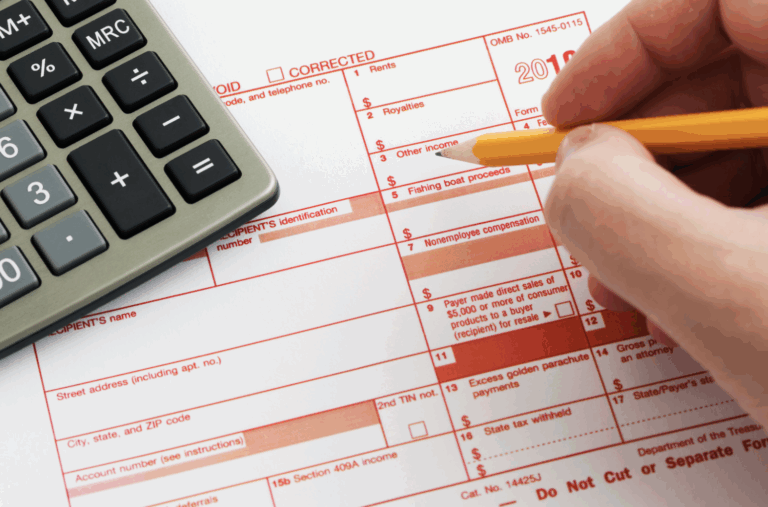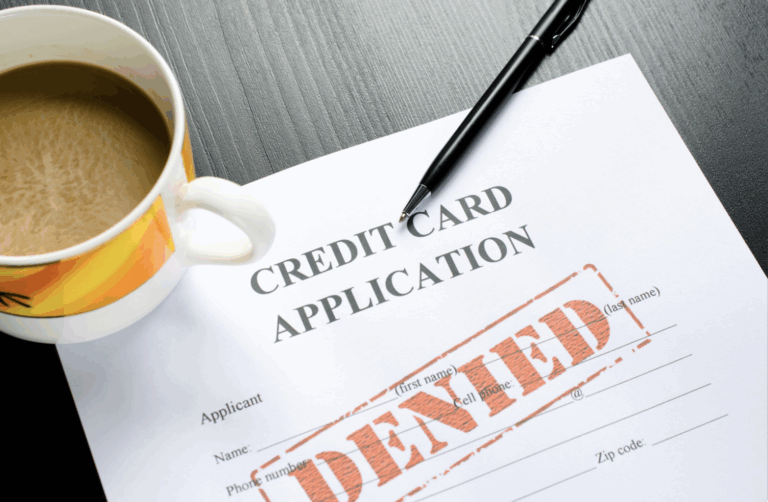“Should I pay the debt collector or original creditor?”
That’s a question many people ask when they owe money but aren’t sure how to resolve the debt. If you have unpaid debt and collectors are calling you day and night, you might be wondering if it’s better to pay them or the original creditor. Read on to learn what to do.
Original Creditor vs. Debt Collector
First, let’s break down the difference between an original creditor and a debt collector.
An original creditor is the entity that initially extended credit to you. This could be a credit card company, bank, student loan lender, MCA provider, etc. The original creditor is the party that has the legal right to collect payment for the debt.
A debt collector, on the other hand, is usually a third party that the original creditor may hire to collect the debt payments. (In some cases, the original creditor may have an in-house collections department they rely on to collect on delinquent debts.)
Alternatively, a debt collector could be associated with a debt collection firm that acquired the debt from the original creditor and is now attempting to collect for themselves (known as a debt buyer).
Understanding the Debt Collection Process
So how does a debt go from the original creditor to a debt collector?
When a debt is past due, the original creditor will try to get you to pay it. However, if the debt goes unpaid for an extended period, the creditor might hand off your account to an internal collections agency that’s tasked with getting you to pay up.
In other cases, the original creditor may sell the debt to a third-party debt collector. This is not the preferred option, though. The original creditor would usually rather keep its customers and be paid in full. They may even reach out to you about making a payment that prevents the debt from going to collections.
However, your creditor may decide to sell the debt in order to free up resources and reduce the amount of delinquent accounts they are managing and/or because they believe the debt is unlikely to be repaid and wish to recoup some of their losses. If this happens, the debt collection agency becomes the new owner of the debt and is responsible for collecting payment.
Collectors may attempt to collect the debt through phone calls, letters, and other means of communication. If the debt remains unpaid, the debt collector may take legal action, such as filing a lawsuit against you.
It’s important to note that the original creditor is required to notify you before selling or transferring the debt to a third-party collector. You should receive written notice of the transfer. It will include the name and contact information of the debt collector who now owns the debt. Additionally, the debt collector must comply with applicable state and federal law. That includes the Fair Debt Collection Practices Act (FDCPA), which sets rules and guidelines for debt collection activities.
How to Tell if a Debt Was Sent to Collections
Say you have outstanding debt, but aren’t sure who currently owns it. There are a few ways to find out whether the debt was sent to collections or not.
Check your credit reports.
Here you will be able to see if any debts are listed as being in collections, along with the name of the creditor and current balance. You can request a free credit report from each of the major credit bureaus (Equifax, Experian, and TransUnion) at annualcreditreport.com.
Reach out to the original creditor.
If the original creditor still owns the debt, they can provide you with a validation letter. This contains important details about your debt, such as how much you currently owe. Keep in mind that if the debt was sold to a third-party collector, the original creditor should be able to tell you who the account was sold to, since there needs to be a chain of title when the files are sold.
Wait to be contacted.
If a debt has been sent to collections, you will receive regular communications from a debt collector, such as phone calls, letters, or emails. The communication should include the name of the collections agency and the amount owed. However, it’s important to request that any organization claiming you owe them money first verify the debt before giving any personal information or making a payment, as there are a lot of scams out there. The Consumer Financial Protection Bureau (CFPB) provides a sample debt validation letter that you can tailor to your personal situation.
It’s important to take prompt action if you believe a debt has been sent to collections. This may include verifying the debt, negotiating a payment plan or a settlement, or seeking the advice of a reputable debt relief lawyer — especially if you’re facing a lawsuit. Ignoring the debt or failing to take action can result in damage to your credit score and serious legal ramifications.
Should I Pay the Debt Collector or Original Creditor?
It’s important to try and pay the original creditor before a debt gets sent to collections. In some cases, the original creditor may be able to reclaim the debt from collections and work out a payment plan with you.
A collection account on your credit report harms your credit score considerably. Bad credit makes it difficult to borrow money in the future. Plus, you may have difficulty renting an apartment, opening utility accounts, and even getting a job in certain industries with a damaged credit history.
If your account has already been sold to a third-party debt collection agency, you’ll need to pay the debt collector as they’re now the legal owners of the debt. But first, it’s important to request verification of the debt. This ensures that the account hasn’t been resold to another collector and you’re working with the right agency.
What If I Want to Negotiate a Repayment Plan?
Sometimes you can end up with a debt in collections by mistake. This often happens with medical debt, for example, but it can happen with other types of debt, too. Maybe you moved and your bills continued going to the wrong address, or your payment didn’t go through.
More likely, however, it’s because you don’t have enough cash on hand to cover your payments. If that’s the case, you probably can’t afford to pay off your debt in one lump sum.
If you’re unable to pay the full amount of the debt upfront, you can contact the debt collector to discuss your options to pay the balance over time. Usually, the original creditor will be more willing to work with you and offer favorable terms. But it’s possible to negotiate with a debt collection agency, too.
Explain your financial situation and propose a payment plan or debt settlement plan that works for you. The debt collector may ask you to provide financial information such as your income and expenses to determine what payment arrangements are feasible.
Be realistic about what you can afford to pay and to make sure that you can stick to the agreement. If you fail to meet the agreed-upon terms, the debt collector may take legal action to collect the debt. Losing a debt lawsuit could result in wage garnishment, asset seizure, or other consequences.
Also, make sure to get all of the terms and conditions in writing ans keep a copy of debt settlement agreements and proof of payments for your records. This can help protect you in case there are any disputes or issues with the payment plan/settlement down the line.
Consider Hiring Legal Help
Although you can negotiate directly with a debt collector, it requires a lot of time, energy, patience, and skill. You can’t be certain a debt collector is telling you everything you need to know. Plus, debt settlement agreements can be tricky, and you don’t want to agree to something you don’t fully understand. That’s why it’s a good idea to work with a debt relief law firm and experienced debt settlement attorney.
A debt relief lawyer can help you understand your rights and legal options, as well as negotiate with the debt collector on your behalf. They can review the details of your situation and provide legal advice on how to proceed, as well as protect your rights and financial security. Additionally, if you are facing a lawsuit or other legal action from a debt, a debt help lawyer can represent you in court and defend against the claims being made so that the matter can be resolved in your best interest. It can be scary to be sued by debt collectors.
The Tayne Law Group has been assisting clients with debt relief for more than two decades. Call us today toll-free at (866) 890-7337 or fill out our short contact form to get a consultation. We never share or sell your information and all conversations are confidential.





